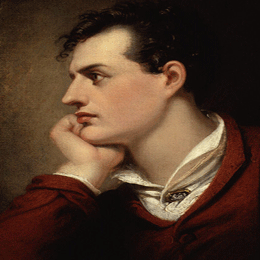
Full Name: George Gordon Byron
Birth Date: January 22, 1788
Birthplace: London, England
Died: April 19, 1824
Occupation: Poet, politician
Nationality: British
Literary movement: Romanticism
Spouse: Anne Isabella Byron
Religion: N/A
Lord Byron was an English poet and the most important figure in the Romantic Movement. Among Byron’s best-known works are the brief poems “She Walks in Beauty”, “When We Two Parted”, and “So, we’ll go no more a-roving”, in addition to the narrative poems Childe Harold’s Pilgrimage and Don Juan.
Lord Byron Career:
Lord Byron was regarded as one of the greatest British poets and remains widely read and influential. Byron was much criticized on ethical grounds, but his poems were widely accepted by thousands of readers at home and abroad.
He was a romantic poet, not in the sense of Wordsworth and Coleridge. He was rebellious in his strength of mind. He was not as much philosophical and studious as Shelley. He used his sordid words against fake and hypocritical social values and hollow spirituality.
His hero that is the Byronic Hero is an idol of revolt against social, moral, political, and religious malpractices. In fact, his excellence lies in the fluency of verse, the fortitude of lashing the vices, and novel-oriented scenery. He traveled to fight against the Ottoman Empire in the Greek War of Independence, for which Greeks admire him as a national hero.
Lord Byron’s Personal Life:
Byron was celebrated in life for aristocratic excesses including huge debts, numerous love affairs, and rumors of scandals. In 1812, Byron embarked on a well-publicized affair with the married Lady Caroline Lamb that shocked the British public. Byron eventually broke off the relationship and moved swiftly on to others such as that with Jane Elizabeth Scott.
She began to call on him at home, sometimes dressed in disguise as a pageboy. In time, Byron began to invite Anne Isabella Milbanke, who refused his first proposal of marriage but later accepted him.
As a child, Byron had seen little of his half-sister Augusta Leigh; in adulthood, he tied a close relationship with her. When she left, in a letter, Augusta quoted him as saying: “Even to have such a thing said is utter destruction and ruin to a man from which he can never recover.”
Died: Byron died (19 April 1824) at 36 years old from a fever contracted while in Missolonghi in Greece.
